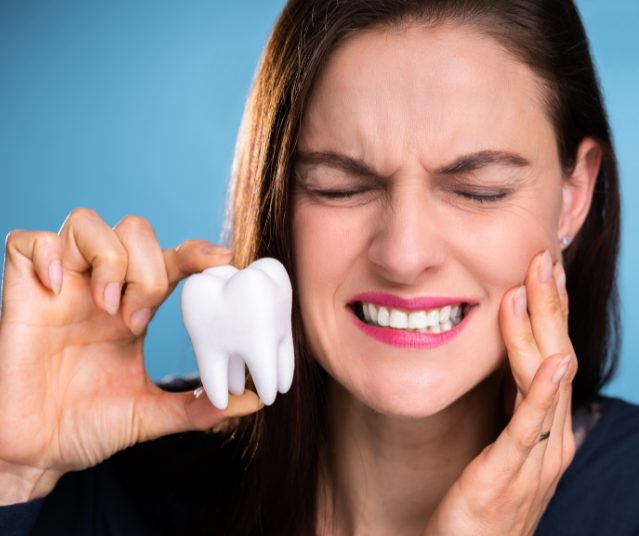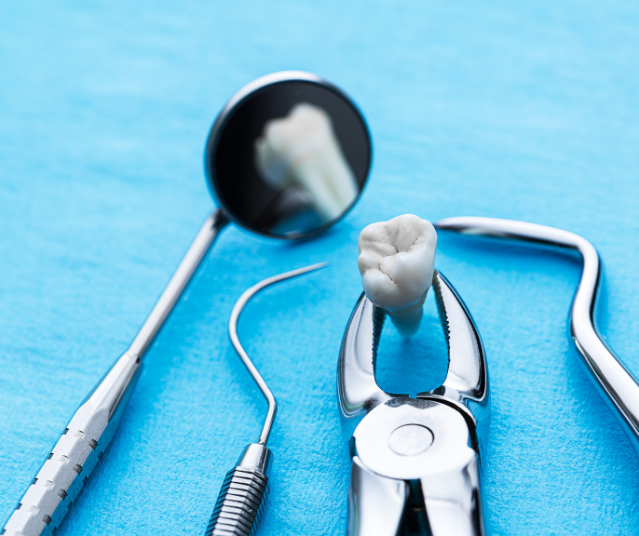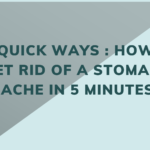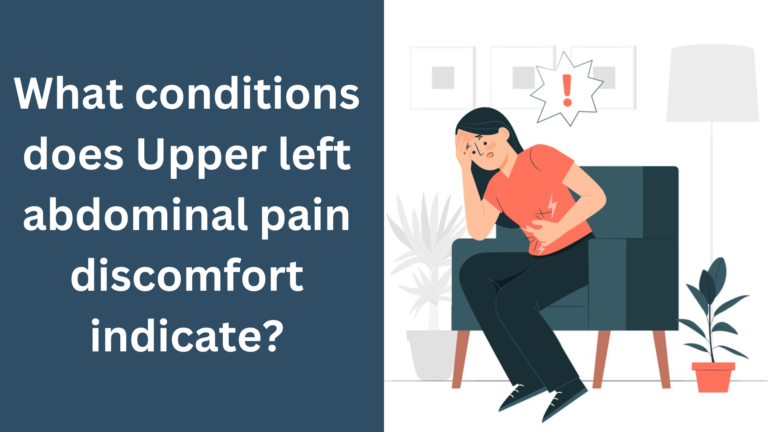Tooth pain can be one of the most unbearable forms of discomfort, and it often arises at the worst possible times. For those who experience intense, nerve-driven tooth pain, immediate relief is essential. While many options exist for temporary relief, there are methods to address tooth pain at its root. This guide explores a variety of approaches, from rapid-relief techniques to professional, permanent solutions for kill tooth pain nerve in 3 seconds permanently.
Understanding Tooth Pain and Its Causes

Tooth pain is often a sharp, throbbing, or aching discomfort that can arise for various reasons, from cavities to infection. When dealing with tooth pain, knowing its causes and understanding effective relief methods, like ways to kill tooth pain nerve in 3 seconds permanently, can be immensely helpful. Let’s explore why tooth pain occurs and some of the most effective ways to manage it.
Know More : Urgent care
1. Common Causes of Tooth Pain
Tooth pain can be triggered by various underlying conditions, some requiring immediate dental care. Here are a few primary causes:
- Cavities: Tooth decay, or cavities, are a common cause of tooth pain, especially if they penetrate deep into the dentin layer, exposing nerves.
- Infected Tooth (Abscess): If bacteria infect the pulp of the tooth, an abscess may form, leading to intense pain, swelling, and sensitivity.
- Gum Disease: Gingivitis and periodontitis cause gum inflammation, which can result in tooth pain as gums recede and expose tooth roots.
- Tooth Fracture: A cracked or broken tooth can irritate the nerves inside, causing sharp, sporadic pain.
- Sensitivity to Hot/Cold: Worn enamel or gum recession can expose dentin, leading to sensitivity when consuming hot, cold, or sugary foods.
- Sinus Infections: Sometimes, a sinus infection can create pressure that radiates to the upper teeth, mimicking tooth pain.
Understanding the cause of your pain is the first step in finding an effective solution.
2. Types of Tooth Pain and What They Mean
Tooth pain can vary in intensity and type, with each form potentially indicating a different underlying issue. Understanding the specific nature of your pain is key to choosing the right treatment. If you’re looking for a quick solution, some methods claim to kill tooth pain nerve in 3 seconds permanently, but it’s important to consult with a dentist to ensure proper care and avoid long-term damage.
- Sharp, Stabbing Pain: Often indicative of a cracked tooth, decay, or exposed nerve.
- Dull, Throbbing Ache: This could signal an infection or inflammation, especially if accompanied by swelling.
- Sensitivity to Temperature: Commonly linked to enamel erosion, exposed roots, or minor decay.
- Pain When Chewing: Could indicate a cavity, cracked tooth, or abscess.
Consulting a dentist is ideal, but there are temporary methods you can try for immediate relief, especially if you’re seeking to “kill tooth pain nerve in 3 seconds permanently.”
3. Temporary vs. Permanent Pain Relief
While temporary relief methods offer immediate comfort, they don’t address the underlying cause of the pain. In some cases, people seek rapid solutions to manage urgent situations. One such method claims to kill tooth pain nerve in 3 seconds permanently, providing quick relief. Here’s a closer look at both short-term and long-term solutions for tooth pain.
Temporary Pain Relief
- Ice Pack Application: Applying an ice pack to the outside of the cheek can reduce inflammation and numb the pain.
- Over-the-Counter Pain Relievers: Ibuprofen or acetaminophen can reduce pain and swelling. Remember, these are only short-term solutions.
- Saltwater Rinse: Rinsing with warm salt water can help kill bacteria, reduce inflammation, and soothe gums.
Permanent Pain Relief Options
For permanent relief, a dental visit is typically necessary to address the root cause of the pain, especially in cases of infections or decay. While some claim to kill tooth pain nerve in 3 seconds permanently, professional treatment is often the best option to ensure long-term relief. Here are some treatment options:
- Root Canal: If the nerve inside the tooth is causing intense pain due to infection or decay, a root canal can effectively remove the nerve tissue and prevent further pain, achieving a permanent solution.
- Tooth Extraction: In cases where the tooth is beyond repair, removing the tooth may be necessary to eliminate the pain source.
- Dental Fillings and Crowns: Fillings can restore cavities, while crowns can protect damaged teeth and prevent nerve irritation.
- Gum Treatment: If gum disease is causing pain, professional cleaning, scaling, and root planing can help restore gum health and alleviate pain.
4. How to kill tooth pain nerve in 3 seconds permanently
This phrase suggests a desire for fast, lasting relief. While the idea of kill tooth pain nerve in 3 seconds permanently may not be realistic without professional care, certain dental procedures can effectively target and “kill” the nerve responsible for the pain, providing longer-lasting relief.
1. Clove Oil Application: Clove oil contains eugenol, a natural anesthetic, which may help to numb the pain and temporarily “kill” nerve sensations in an emergency. Apply a small amount directly to the affected area, but be cautious, as it may irritate surrounding tissue.
2. Cold Compress for Immediate Numbing: Using an ice pack outside the cheek for 3 seconds can momentarily numb the area, providing a quick, though temporary, relief. This doesn’t kill the nerve but can reduce pain for a short while.
3. Dental Anesthetic Gels: Available over the counter, anesthetic gels containing benzocaine can provide quick, temporary pain relief by numbing the area around the tooth.
However, to kill the nerve pain permanently, a root canal procedure or extraction is the best solution. During a root canal, the infected or damaged nerve tissue is removed, eliminating the source of pain. An extraction, on the other hand, completely removes the tooth and nerve, which can be necessary in severe cases.
5. Preventing Tooth Pain: Best Practices for Oral Health
Prevention is always better than cure, and maintaining good oral hygiene can help prevent many causes of tooth pain:
- Brush Twice Daily: Use a fluoride toothpaste and a soft-bristled toothbrush.
- Floss Daily: Flossing prevents gum disease and tooth decay between teeth.
- Limit Sugary Foods and Beverages: Sugar can feed bacteria that produce acids, eroding enamel and causing cavities.
- Regular Dental Checkups: A professional cleaning and examination can catch problems before they turn into painful issues.
Identifying Nerve-Related Pain
The type of pain you experience can often indicate its source. Sharp, shooting pain typically points to nerve involvement, while dull aches may be linked to gum disease or decay. For nerve pain, finding a solution that directly targets the nerve, such as methods that claim to kill tooth pain nerve in 3 seconds permanently, is crucial for effective relief.
Peppermint Tea Bags
Peppermint tea has soothing properties and can be a mild numbing agent. Using a cooled peppermint tea bag on the affected area can ease discomfort.
Steps:
- Boil a peppermint tea bag and let it cool.
- Apply the tea bag directly to the painful area for about 10-15 minutes.
Unbearable Tooth Pain: What to Do at Home
Tooth pain can be excruciating, often feeling unbearable when it strikes. Whether it’s a sharp, shooting pain or a dull, constant ache, tooth pain can make it hard to focus on anything else. Many people seek immediate relief, wondering how to stop the pain and if there are any effective home remedies. While it’s essential to consult with a dentist for a proper diagnosis and treatment, some claim to kill tooth pain nerve in 3 seconds permanently, offering quick relief in the meantime. However, there are also several other ways to manage tooth pain at home until you can see a professional.
If you’re asking yourself, kill tooth pain nerve in 3 seconds permanently —while no method is truly permanent in that sense, there are several techniques and remedies that can provide fast and temporary relief. Let’s explore both the causes of tooth pain and what you can do to manage it at home.
Common Causes of Tooth Pain
Before diving into the remedies, it’s important to understand what may be causing your tooth pain. Some of the most common causes include:
- Tooth decay (cavities): When decay reaches the nerve, it can cause throbbing pain.
- Infection or abscess: A bacterial infection in or around the tooth can irritate the nerve and cause severe pain.
- Tooth fracture or injury: A cracked or chipped tooth can expose the nerve, resulting in sharp pain.
- Gum disease: Inflammation of the gums can put pressure on the roots of your teeth, leading to discomfort.
- Teeth grinding: Grinding your teeth at night can cause nerve pain due to the pressure on the tooth enamel.
Regardless of the cause, when tooth pain strikes, the goal is to stop the discomfort and address the underlying problem. However, it’s important to note that while you might seek ways to “kill tooth pain nerve in 3 seconds permanently,” there is no shortcut to permanently resolving nerve pain without proper dental intervention.
Home Remedies for Unbearable Tooth Pain
Here are some quick and effective methods you can try at home to alleviate tooth pain:
1. Saltwater Rinse
A simple saltwater rinse can help disinfect the affected area, reduce inflammation, and soothe the pain. While it won’t kill tooth pain nerve in 3 seconds permanently, it is a natural remedy that has been used for centuries. Mix about half a teaspoon of salt into warm water and swish it around your mouth for 30 seconds. This can help kill bacteria and provide some temporary relief from tooth pain.
2. Cold Compress
Applying a cold compress to the outside of your cheek near the painful area can help numb the pain and reduce swelling. Wrap some ice in a towel and apply it for 15-20 minutes at a time. Be careful not to place ice directly on the skin to avoid frostbite.
3. Over-the-Counter Pain Relievers
If your tooth pain is unbearable, over-the-counter pain medications like ibuprofen (Advil, Motrin) or acetaminophen (Tylenol) can offer significant relief. Be sure to follow the recommended dosage instructions and consult with a healthcare provider if you’re unsure about what to take.
4. Clove Oil or Clove Buds

Cloves contain eugenol, a natural anesthetic that can temporarily numb the affected area. Applying clove oil directly to the painful tooth can help alleviate the discomfort. You can also place a whole clove near the tooth and bite down gently to release the oil.
5. Peppermint Tea Bags
Peppermint has mild numbing properties. Steep a peppermint tea bag in hot water, then let it cool down in the refrigerator. Once it’s cold, place the tea bag on the painful area for a soothing effect.
6. Hydrogen Peroxide Rinse
Hydrogen peroxide has both antibacterial and anti-inflammatory properties, which can help with pain relief and infection. Mix equal parts of 3% hydrogen peroxide and water, and swish it in your mouth for about 30 seconds. Be sure to spit it out and rinse thoroughly with water afterward. Do not swallow hydrogen peroxide.
7. Garlic
Garlic contains allicin, a compound with strong antibacterial and pain-relieving properties. You can crush a fresh garlic clove into a paste and apply it directly to the affected tooth, or chew a small piece of garlic slowly for its healing properties.
8. Onion
Onions are known for their antibacterial properties and can provide temporary relief from tooth pain. You can chew raw onion or place a piece of it on the painful area to help kill bacteria and reduce inflammation.
Can You kill tooth pain nerve in 3 seconds permanently ?
The phrase kill tooth pain nerve in 3 seconds permanently might sound appealing, but it’s important to recognize that there is no immediate or permanent way to completely eliminate tooth pain without addressing the underlying cause. While some home remedies like clove oil or cold compresses can offer temporary relief by numbing the area or reducing inflammation, these effects are short-lived.
If you are experiencing severe tooth pain, it’s likely due to an underlying issue like a cavity, abscess, or gum infection. While the pain may subside for a brief time with these remedies, it is crucial to address the root cause through professional dental care. There is no permanent “cure” that will work in 3 seconds for the nerve of your tooth.
However, modern dentistry has advanced significantly, and treatments such as root canals can remove the source of pain at the nerve level, offering permanent relief when performed by a dentist. If the pain is related to an abscess, antibiotics or drainage may be necessary to eliminate the infection, and your dentist can provide long-term solutions.
When to Seek Professional Help
If your tooth pain persists despite home remedies, or if you experience additional symptoms such as swelling, fever, or difficulty swallowing, it’s time to consult a dentist. These could be signs of a more serious dental issue, such as an infection or abscess, that requires professional treatment. A dentist can identify the root cause and recommend the appropriate course of action, whether it’s a filling, root canal, or other treatment.
What Kills Tooth Pain Instantly?
When immediate relief is needed, certain remedies can provide fast results. While these are not permanent fixes, they can help during extreme situations.
Peppermint Oil for Rapid Relief
Peppermint oil is another natural remedy with analgesic and numbing properties. Applying a few drops on a cotton ball can quickly alleviate pain.
Steps to Use Peppermint Oil:
- Soak a cotton ball in peppermint oil.
- Apply it directly to the affected area.
- Leave it for a few minutes, then rinse.
Hydrogen Peroxide Rinse for Infection Control
Hydrogen peroxide is a powerful antibacterial agent that can help reduce pain caused by infection. It’s especially effective for pain caused by inflammation or abscesses.
Steps:
- Mix equal parts of 3% hydrogen peroxide and water.
- Swish the solution around your mouth for 30 seconds.
- Spit it out and rinse with plain water.
Use this method with caution, as overuse can damage the delicate tissues in the mouth.
Aspirin on the Affected Tooth
While not universally recommended, some people find relief by placing an aspirin tablet directly on the painful tooth. This method should be used sparingly, as aspirin is acidic and can irritate the gums.
Steps:
- Place an aspirin on the affected tooth.
- Allow it to dissolve slowly.
- Rinse your mouth thoroughly afterward.
The Secret to Kill Tooth Pain Nerve in 3 Seconds Permanently
If you’re looking for a permanent solution to kill tooth pain nerve in 3 seconds permanently, professional options are often required. Dentists have tools and treatments designed to eliminate pain at the source.
Professional Options for Permanent Nerve Kill
If you’ve been dealing with unbearable tooth pain, you may have encountered the phrase “kill tooth pain nerve in 3 seconds permanently.” While this idea may seem appealing, it’s important to understand that there’s no instant or permanent way to eliminate tooth pain in such a short time without addressing the root cause. However, professional dental treatments can provide effective, long-term relief by targeting the nerve and treating the underlying issue.
In this article, we’ll explore various professional options for permanent nerve pain relief, including root canals, dental extractions, and advanced pain management techniques. We’ll also discuss how modern dentistry provides effective solutions for those seeking lasting relief from persistent tooth pain, beyond the idea of “kill tooth pain nerve in 3 seconds permanently.”
Understanding Tooth Pain and Nerve Damage
To truly grasp how dental professionals can kill tooth pain nerve in 3 seconds permanently it’s important to understand why tooth pain occurs. Most often, tooth pain arises from irritation or damage to the tooth’s nerve, located in the pulp at the center of the tooth. This nerve is highly sensitive and can become inflamed or infected due to:
- Tooth decay (cavities): Deep cavities that expose the pulp to bacteria.
- Tooth abscess: An infection at the root tip of the tooth.
- Trauma or injury: A crack or chip in the tooth can expose the nerve.
- Gum disease: Inflammation of the gums can affect the tooth root and its nerve.
Once the nerve is affected, pain can range from dull and aching to sharp and intense. If left untreated, the infection or damage to the nerve may become worse, leading to more severe pain. Now, let’s take a look at the professional options available for permanent nerve pain relief.
1. Root Canal Therapy (Endodontic Treatment)
Root canal treatment is the most common and effective procedure for permanently addressing nerve pain caused by tooth decay, infection, or injury. If you’ve ever wondered if it’s possible to “kill tooth pain nerve in 3 seconds permanently,” a root canal might be the closest thing. Here’s how it works:
- Step 1: The dentist numbs the area around the affected tooth to eliminate pain.
- Step 2: The dentist creates a small opening in the tooth to access the pulp (nerve).
- Step 3: The infected or damaged pulp is removed, and the empty space is thoroughly cleaned and disinfected.
- Step 4: The space is filled with a biocompatible material, and the tooth is sealed.
By removing the nerve tissue, root canal therapy effectively “kills” the nerve, stopping the pain permanently. While this procedure may take longer than 3 seconds, it provides lasting relief. Most patients experience relief almost immediately after the procedure, and the tooth is restored with a crown or filling to protect it from future damage.
Effectiveness: Root canals have a success rate of 85-97%, making them a highly effective way to permanently resolve nerve pain without needing to extract the tooth.
2. Tooth Extraction

In cases where a root canal is not feasible or the tooth is too damaged, tooth extraction may be the best option for permanent nerve pain relief. This involves the complete removal of the affected tooth, including the nerve.
- When is extraction necessary? If a tooth is severely decayed, fractured, or infected and cannot be repaired, extraction may be the only way to eliminate the source of the pain permanently.
- How does it help? Once the tooth and its nerve are removed, the pain stops because there is no longer a nerve to cause discomfort.
Extraction is usually performed under local anesthesia, so you won’t feel pain during the procedure. If the tooth is located at the back of the mouth (such as wisdom teeth), the procedure may be more complex, requiring stitches for healing. After the extraction, your dentist may discuss options for replacing the missing tooth, such as a dental implant or bridge, to maintain proper function and aesthetics.
3. Nerve Desensitization (Pulpotomy or Pulp Capping)
For some patients, particularly those with early-stage tooth decay or mild pulp inflammation, a procedure called pulpotomy or pulp capping can be used to preserve the tooth while reducing pain.
- Pulpotomy: This procedure involves removing part of the pulp (nerve) while leaving the remaining healthy pulp tissue intact. The goal is to stop the pain while keeping the tooth alive and functional. It’s commonly used for children’s baby teeth or for teeth with mild pulp damage.
- Pulp Capping: In cases where the pulp is not infected but is slightly irritated, a dentist may place a special medication (calcium hydroxide) directly on the pulp to encourage healing. This helps soothe the nerve and stop pain without removing the nerve entirely.
These procedures aim to preserve the tooth while relieving pain. However, they are generally more appropriate for less severe cases. If the nerve damage is extensive, a root canal or extraction may still be necessary.
4. Advanced Pain Management Techniques
In certain situations, nerve pain may be so severe that additional pain management techniques are needed to provide relief. kill tooth pain nerve in 3 seconds permanently in the sense of completely removing it, they can help manage pain in the short term:
- Local Anesthesia: Dentists can use local anesthetics like lidocaine to numb the affected area during procedures, ensuring that the patient doesn’t feel pain.
- Sedation Dentistry: For patients with dental anxiety or those undergoing complex procedures, sedation dentistry can help them relax during the treatment, allowing for a more comfortable experience.
- Laser Dentistry: Lasers can be used to target nerve tissue with high precision, reducing discomfort and inflammation while preserving healthy tissue. Laser treatments can be part of a root canal or other dental procedures to manage pain effectively.
5. Post-Treatment Pain Relief
After any professional treatment for nerve pain, dentists often recommend pain management strategies to ensure comfort during the healing process:
- Over-the-counter Pain Relievers: Medications like ibuprofen or acetaminophen can help reduce any lingering discomfort after a procedure.
- Ice Packs: Applying a cold compress to the outside of your face can reduce swelling and numb the pain during the recovery period.
- Follow-Up Care: Your dentist may schedule a follow-up appointment to ensure the treated area is healing properly and that no further issues remain.
Can Clove Oil kill tooth pain nerve in 3 seconds permanently?
While clove oil is highly effective for immediate relief, it doesn’t kill tooth pain nerve in 3 seconds permanently. It can temporarily numb the area, allowing you to seek further treatment.
Preventing Tooth Pain for Lasting Comfort
Prevention is key to avoiding future tooth pain. By following these practices, you can protect your teeth and reduce the likelihood of severe pain.
Daily Oral Hygiene
- Brush Twice Daily: Use a soft-bristled toothbrush and fluoride toothpaste to remove plaque.
- Floss Regularly: Flossing removes food particles between teeth that brushing can miss.
Limit Sugary and Acidic Foods
Sugary foods feed harmful bacteria, while acidic foods can erode enamel, increasing sensitivity.
Regular Dental Checkups
Visit your dentist every six months for cleanings and checkups. Early detection of cavities or gum issues can prevent more serious problems later on. While some may search for ways to kill tooth pain nerve in 3 seconds permanently, regular dental visits are the best way to address potential issues before they lead to severe pain or complications.
When to See a Dentist for Tooth Pain
Tooth pain can be incredibly disruptive, impacting everything from your daily activities to your mood. When the pain becomes unbearable, you might find yourself searching for a quick fix, wondering, “Can I really kill tooth pain nerve in 3 seconds permanently?” While it’s natural to seek fast relief, the truth is that effective, long-term pain management requires addressing the root cause of the pain. This typically means visiting a dentist for professional care.
To help you determine when it’s time to consult a dentist and why relying on temporary remedies alone is not enough, let’s explore the key signs that indicate you should seek dental attention. Additionally, we’ll explain why there is no way to kill tooth pain nerve in 3 seconds permanently without addressing the underlying issue through professional care.
When to See a Dentist for Tooth Pain
There are several situations where seeing a dentist is not just a good idea, but absolutely necessary. Here’s when you should reach out to a professional:
1. Persistent Pain That Doesn’t Go Away
If tooth pain persists for more than a couple of days and doesn’t subside with over-the-counter painkillers or home remedies, it’s time to consult a dentist. Some people may try to kill tooth pain nerve in 3 seconds permanently using temporary solutions, such as cold compresses or numbing gels. While these methods can offer short-term relief, they don’t address the underlying issue. Ongoing pain often signals an infection, deep decay, or nerve damage that requires professional treatment.
2. Severe Pain or Throbbing Sensation
Intense, throbbing, or sharp pain often signals serious dental issues, such as an abscess, cracked tooth, or advanced cavity. If the pain is excruciating, especially if it comes in waves, it could indicate an infected or inflamed nerve. While you might look for a way to kill tooth pain nerve in 3 seconds permanently, this type of pain usually requires a root canal or another dental procedure to remove or treat the affected nerve and resolve the issue.
3. Pain That Is Triggered by Hot or Cold Foods
If you experience sudden pain when eating hot or cold foods or drinks, it may indicate that the nerve in your tooth is exposed or inflamed, often due to a cavity, cracked tooth, or gum recession. While some may search for ways to kill tooth pain nerve in 3 seconds permanently, temporary methods won’t offer lasting relief. A dentist can identify the cause and provide the proper treatment, such as a filling, root canal, or another procedure, to address the issue and stop the pain for good.
4. Swelling or Abscess Around the Tooth
Swelling of the gums, especially when accompanied by a pimple-like bump (abscess) that may discharge pus, is a strong indicator of a tooth infection. This infection can spread to the tooth nerve, causing severe pain. While some may wonder if it’s possible to kill tooth pain nerve in 3 seconds permanently, the reality is that only a dentist can properly drain an abscess, clear the infection, and treat the nerve, either through a root canal or extraction, to prevent the infection from worsening.
5. Pain with Sensitivity to Touch
If your tooth hurts when touched or when you bite down, it could be a sign of nerve damage or a deep cavity. While you might find temporary relief by avoiding pressure on the tooth, without professional treatment, the pain is likely to return. Some may search for ways to kill tooth pain nerve in 3 seconds permanently, but a dentist will need to assess the extent of the damage. They can repair or remove the affected tooth, addressing the nerve issue once and for all.
6. Fever or General Malaise Accompanied by Tooth Pain
If your tooth pain is accompanied by a fever, fatigue, or a general sense of being unwell, it could be a sign that an infection has spread beyond the tooth and into surrounding tissues. This is a serious condition that requires immediate professional attention. While you might be searching for a way to kill tooth pain nerve in 3 seconds permanently, this type of infection needs proper medical treatment to prevent complications like abscesses or systemic infection.
7. Pain After a Recent Injury
If you’ve recently sustained a blow to your mouth or teeth and are now experiencing pain, it could be due to a cracked or fractured tooth. An exposed nerve or damage to the tooth pulp can cause significant pain. While some may seek methods to kill tooth pain nerve in 3 seconds permanently for immediate relief, it’s important to visit a dentist for a thorough examination. The dentist will determine if a root canal, extraction, or another procedure is needed to address the issue and prevent further complications.
Read More : Dental care









